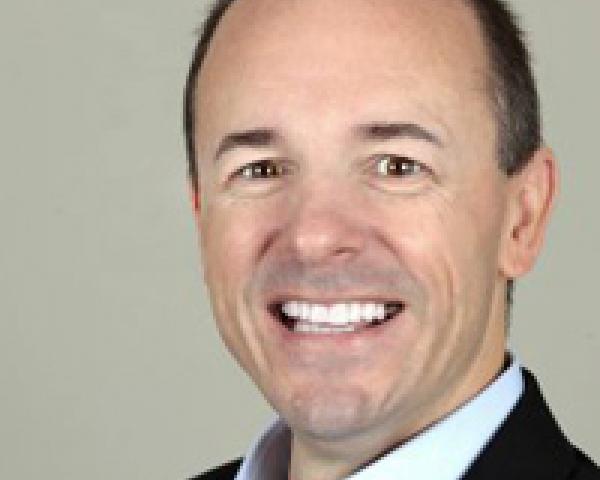 Most everyone knows our healthcare is in crisis. The solution appears clear: improve care quality, reduce cost, increase safety, grow healthier communities and deliver all this with greater consumer affordability. The advent of healthcare technology will certainly help make much of this possible.
But we must not make the mistake of thinking patients will have the same level of dedication to population health, wearables and medication adherence as we do. Patients care about themselves and those they love. They care about money and their financial future. They care about feeling good and avoiding pain — but the pain can be more than just their symptoms and condition.
Health payers acquired a longstanding, terrible reputation for not caring. Many plan members, who suffer physically, emotionally and financially, felt as though they were treated like just another accounting line item, as if they were just commodities that made the business of healthcare payments go 'round.
We're at a tipping point. As more risk shifts onto the shoulders of hospitals, providers and affordable care organizations (ACOs), we must not make the same mistakes. Tomorrow's healthcare will involve and require patient compliance and participation to get the best results.
It is one thing to put technology in place that captures patient-generated health data, but it is quite another to show patients you care about the data. Patients deserve to feel the compassion, caring and humanity in our hearts and actions.
See also: Innovation: a Need for ‘Patient Urgency’
I've retired from practice, my career now shifting into the business side of healthcare. I am carefully seeking my next path for the right healthcare company, where I can blend my experience, talents, skills and years of front-line patient experience. The healthcare sector is a target-rich environment, whose underlying industries, more than ever, have a tremendous ability to shape the course and outcomes of human lives.
Technology, big data and Triple Aim aside, we must remember the human condition is more than just condition. It is a place where people reside because they often have lost hope and human support.
In the future of patient data, we must recognize that behind the numbers lives a human life and heart and the potential for physical and emotional improvement.
Most everyone knows our healthcare is in crisis. The solution appears clear: improve care quality, reduce cost, increase safety, grow healthier communities and deliver all this with greater consumer affordability. The advent of healthcare technology will certainly help make much of this possible.
But we must not make the mistake of thinking patients will have the same level of dedication to population health, wearables and medication adherence as we do. Patients care about themselves and those they love. They care about money and their financial future. They care about feeling good and avoiding pain — but the pain can be more than just their symptoms and condition.
Health payers acquired a longstanding, terrible reputation for not caring. Many plan members, who suffer physically, emotionally and financially, felt as though they were treated like just another accounting line item, as if they were just commodities that made the business of healthcare payments go 'round.
We're at a tipping point. As more risk shifts onto the shoulders of hospitals, providers and affordable care organizations (ACOs), we must not make the same mistakes. Tomorrow's healthcare will involve and require patient compliance and participation to get the best results.
It is one thing to put technology in place that captures patient-generated health data, but it is quite another to show patients you care about the data. Patients deserve to feel the compassion, caring and humanity in our hearts and actions.
See also: Innovation: a Need for ‘Patient Urgency’
I've retired from practice, my career now shifting into the business side of healthcare. I am carefully seeking my next path for the right healthcare company, where I can blend my experience, talents, skills and years of front-line patient experience. The healthcare sector is a target-rich environment, whose underlying industries, more than ever, have a tremendous ability to shape the course and outcomes of human lives.
Technology, big data and Triple Aim aside, we must remember the human condition is more than just condition. It is a place where people reside because they often have lost hope and human support.
In the future of patient data, we must recognize that behind the numbers lives a human life and heart and the potential for physical and emotional improvement.Keep the Humanity in Healthcare
Some may think the majority of patients just want their symptom or disease treated. News flash — you're wrong.

 Most everyone knows our healthcare is in crisis. The solution appears clear: improve care quality, reduce cost, increase safety, grow healthier communities and deliver all this with greater consumer affordability. The advent of healthcare technology will certainly help make much of this possible.
But we must not make the mistake of thinking patients will have the same level of dedication to population health, wearables and medication adherence as we do. Patients care about themselves and those they love. They care about money and their financial future. They care about feeling good and avoiding pain — but the pain can be more than just their symptoms and condition.
Health payers acquired a longstanding, terrible reputation for not caring. Many plan members, who suffer physically, emotionally and financially, felt as though they were treated like just another accounting line item, as if they were just commodities that made the business of healthcare payments go 'round.
We're at a tipping point. As more risk shifts onto the shoulders of hospitals, providers and affordable care organizations (ACOs), we must not make the same mistakes. Tomorrow's healthcare will involve and require patient compliance and participation to get the best results.
It is one thing to put technology in place that captures patient-generated health data, but it is quite another to show patients you care about the data. Patients deserve to feel the compassion, caring and humanity in our hearts and actions.
See also: Innovation: a Need for ‘Patient Urgency’
I've retired from practice, my career now shifting into the business side of healthcare. I am carefully seeking my next path for the right healthcare company, where I can blend my experience, talents, skills and years of front-line patient experience. The healthcare sector is a target-rich environment, whose underlying industries, more than ever, have a tremendous ability to shape the course and outcomes of human lives.
Technology, big data and Triple Aim aside, we must remember the human condition is more than just condition. It is a place where people reside because they often have lost hope and human support.
In the future of patient data, we must recognize that behind the numbers lives a human life and heart and the potential for physical and emotional improvement.
Most everyone knows our healthcare is in crisis. The solution appears clear: improve care quality, reduce cost, increase safety, grow healthier communities and deliver all this with greater consumer affordability. The advent of healthcare technology will certainly help make much of this possible.
But we must not make the mistake of thinking patients will have the same level of dedication to population health, wearables and medication adherence as we do. Patients care about themselves and those they love. They care about money and their financial future. They care about feeling good and avoiding pain — but the pain can be more than just their symptoms and condition.
Health payers acquired a longstanding, terrible reputation for not caring. Many plan members, who suffer physically, emotionally and financially, felt as though they were treated like just another accounting line item, as if they were just commodities that made the business of healthcare payments go 'round.
We're at a tipping point. As more risk shifts onto the shoulders of hospitals, providers and affordable care organizations (ACOs), we must not make the same mistakes. Tomorrow's healthcare will involve and require patient compliance and participation to get the best results.
It is one thing to put technology in place that captures patient-generated health data, but it is quite another to show patients you care about the data. Patients deserve to feel the compassion, caring and humanity in our hearts and actions.
See also: Innovation: a Need for ‘Patient Urgency’
I've retired from practice, my career now shifting into the business side of healthcare. I am carefully seeking my next path for the right healthcare company, where I can blend my experience, talents, skills and years of front-line patient experience. The healthcare sector is a target-rich environment, whose underlying industries, more than ever, have a tremendous ability to shape the course and outcomes of human lives.
Technology, big data and Triple Aim aside, we must remember the human condition is more than just condition. It is a place where people reside because they often have lost hope and human support.
In the future of patient data, we must recognize that behind the numbers lives a human life and heart and the potential for physical and emotional improvement.






